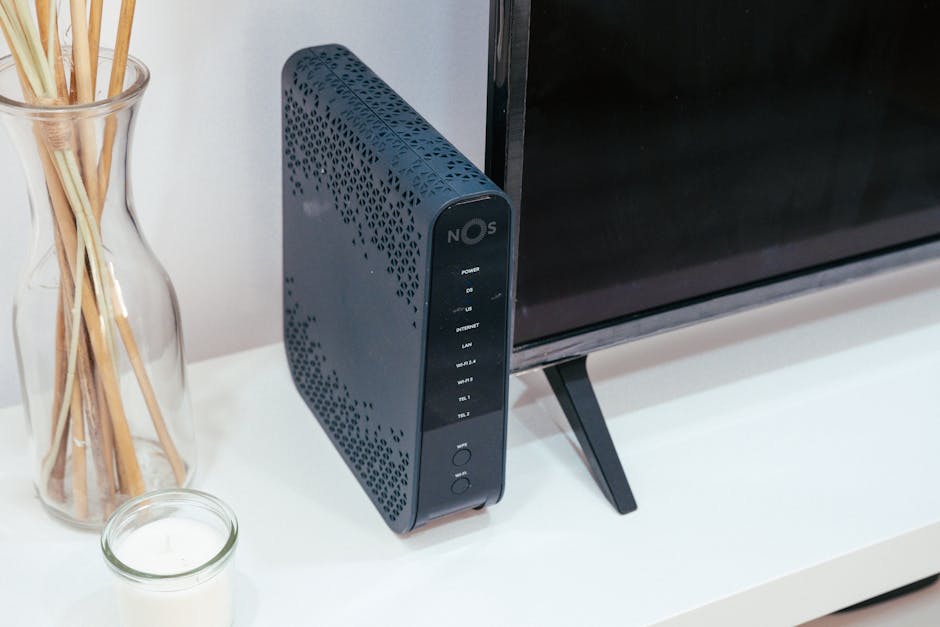Understanding the Impact of Routers on Internet Speed

Routers play a crucial role in determining internet speed, yet their impact is often misunderstood or overlooked by general consumers. Whether you're streaming a movie, participating in a video call, or simply browsing the web, the efficiency of your router can significantly influence your online experience. Understanding how routers work and how they affect internet speed can help you make informed decisions about your home or office network setup.
How Routers Work
Routers are devices that manage the flow of data between your home network and the wider internet. They connect multiple devices to the internet through either wired or wireless connections. By directing data packets to their intended destinations, routers ensure that information is efficiently transmitted and received.
Routers use different protocols and technologies to perform these tasks. For example, they may use Dynamic Host Configuration Protocol (DHCP) to assign IP addresses to devices, and Network Address Translation (NAT) to translate private IP addresses into a public one. These processes are essential for maintaining network security and functionality.
The performance of a router can be influenced by various factors, including its hardware specifications, firmware, and the technologies it supports. High-end routers with advanced features like Quality of Service (QoS) settings can prioritize traffic for certain applications, improving performance for activities like gaming or video conferencing.
Factors Affecting Router Performance
Several factors can impact the performance of a router and, consequently, your internet speed:
- Router Placement: The location of your router within your home or office can significantly affect its performance. Placing it in a central location can help ensure even coverage.
- Interference: Other electronic devices, physical obstructions like walls and furniture, and even other Wi-Fi networks can interfere with your router's signal.
- Firmware Updates: Keeping your router's firmware updated can improve its performance and security. Manufacturers often release updates to address vulnerabilities and enhance functionality.
- Bandwidth Allocation: Routers can manage bandwidth allocation among connected devices. Ensuring that high-bandwidth activities do not monopolize the connection can help maintain overall speed.
Types of Routers
There are several types of routers available on the market, each suited for different needs:
- Single-Band Routers: These operate on a single frequency band (2.4 GHz) and are suitable for basic internet usage like browsing and emailing.
- Dual-Band Routers: These support both 2.4 GHz and 5 GHz frequency bands, providing better performance for streaming and gaming by reducing interference.
- Tri-Band Routers: These include an additional 5 GHz band, making them ideal for homes with multiple high-bandwidth devices.
- Mesh Wi-Fi Systems: These consist of multiple units working together to provide seamless coverage across large areas, eliminating dead zones.
The Role of Internet Service Providers (ISPs)
Your ISP also plays a significant role in determining your internet speed. ISPs provide the connection that feeds into your router, setting the maximum potential speed for your network. However, if your router cannot handle these speeds due to hardware limitations or poor configuration, you won't fully benefit from what you're paying for.
Different ISPs offer varying speeds and levels of service. It's crucial to choose an ISP that meets your needs in terms of both speed and reliability. Additionally, understanding the type of connection offered (e.g., fiber-optic, cable, DSL) can help you select a compatible router that maximizes performance.
Troubleshooting Common Router Issues
If you're experiencing slow internet speeds or connectivity problems, there are several steps you can take to troubleshoot your router:
| Issue | Potential Solution |
|---|---|
| Poor Signal Strength | Relocate the router to a more central position or use range extenders. |
| Dropped Connections | Check for firmware updates or consider upgrading to a more advanced router model. |
| Slow Speeds on Specific Devices | Use QoS settings to prioritize important traffic or limit bandwidth usage on other devices. |
| No Internet Connection | Restart the router and modem, check cables, or contact your ISP for assistance. |
The quality of your router directly affects the speed and reliability of your internet connection. By understanding how routers work and considering factors such as placement, interference, and firmware updates, you can optimize your network for better performance. Whether you're using a single-band router for basic tasks or a tri-band system for heavy usage, choosing the right equipment and configuring it properly is essential.
Your ISP's role in providing reliable service cannot be overlooked either. Ensuring that you have a compatible router that matches your ISP's capabilities will help you get the most out of your internet connection. Addressing common issues through simple troubleshooting steps can also resolve many performance problems without needing professional assistance.
If you're looking to upgrade your network setup or troubleshoot existing issues, start by evaluating your current router's capabilities and positioning within your space. Keep firmware updated regularly and consider advanced features like QoS settings to enhance specific activities' performance. By taking these steps, you'll ensure a smoother and faster online experience tailored to your unique needs.
References: CNET, PCMag, TechRadar.